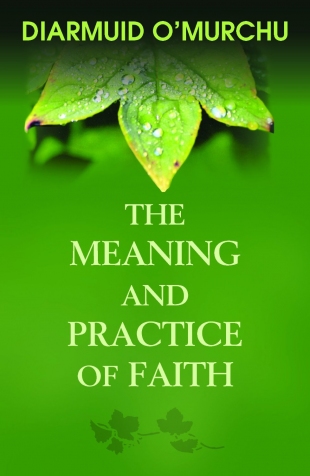"As one's religious outlook changes . . . new questions arise, and the questions are often felt to be empowering rather than destructive of one's inner spiritual meaning. This is where the adult faith seeker might first experience a dilemma: 'Do I try to get rid of these questions? Or do I allow them even more scope and ventilation?' A growing body of adults in our time feels they should work with this restlessness rather than try to suppress it. In time, such questioning adults are likely to adopt one or more of these attitudinal changes:
"• a desire to outgrow parental patronizing, often misinterpreted as distrust of authority;
• greater trust in one's intuitive wisdom;
• seeking out kindred spirits to discern intuitive insight rather than turning to established religious authorities;
• greater reliance on peer wisdom, rather than turning to experts, religious or otherwise;
• a search for local peer-based groups — along the lines of Basic Ecclesial Communities (BECs) — connected with the church but not controlled by it;
• a desire to explore and experiment with empowering rituals;
• interest in other world religions, and occasionally involvement in their rituals or practices, e.g., Eastern forms of meditation;
• a tendency to emphasize values related to achieving justice and the adoption of life changes to integrate such values;
• an orientation toward enlarged vision, especially around creation, ecology, and right livelihood;
• a growing sense that adult spirituality has at its core value the establishment of empowering and liberating relationships: at the personal, interpersonal, social, planetary, and cosmic levels;
• a dawning realization that most of the meaningless suffering in the world is the result of wrong human interference, which needs to be rectified by more informed justice-based action rather than waiting in vain for redemptive divine intervention.
"The evolving adult of our time is not antireligion. She just considers religion to be archaic and irrelevant, and yearns for a more viable and empowering alternative. And in this new endeavor the seeking is more important than the finding, the questions more engaging than official answers. Dialogue is probably the single biggest strategy being sought out by these new adult faith seekers. Correspondingly, any indication of clerical or hierarchical patronizing is likely to rapidly alienate them.
"One area yet to receive due attention is that of ethics and morality, particularly in an age of extensive experimentation of organic life — human and nonhuman alike. Religious morality is widely perceived to be narrowly preoccupied with individual private behavior, particularly in the sexual realm, while weak and collusive on the outrageous violence, exploitation, power-brokering, and pernicious advertising that characterize our modern world. On all these issues, formal religion has little or no impact, leaving adults quite unsure where to look for guidance.
"Some adults suggest that governments need to be much more directly involved in developing and implementing moral values for the future. The dilemma here is that many of those same adults acknowledge that secular governments are even more corrupt than the religions are, leaving us with a moral vacuum that, as yet, we don't know how to fill."
